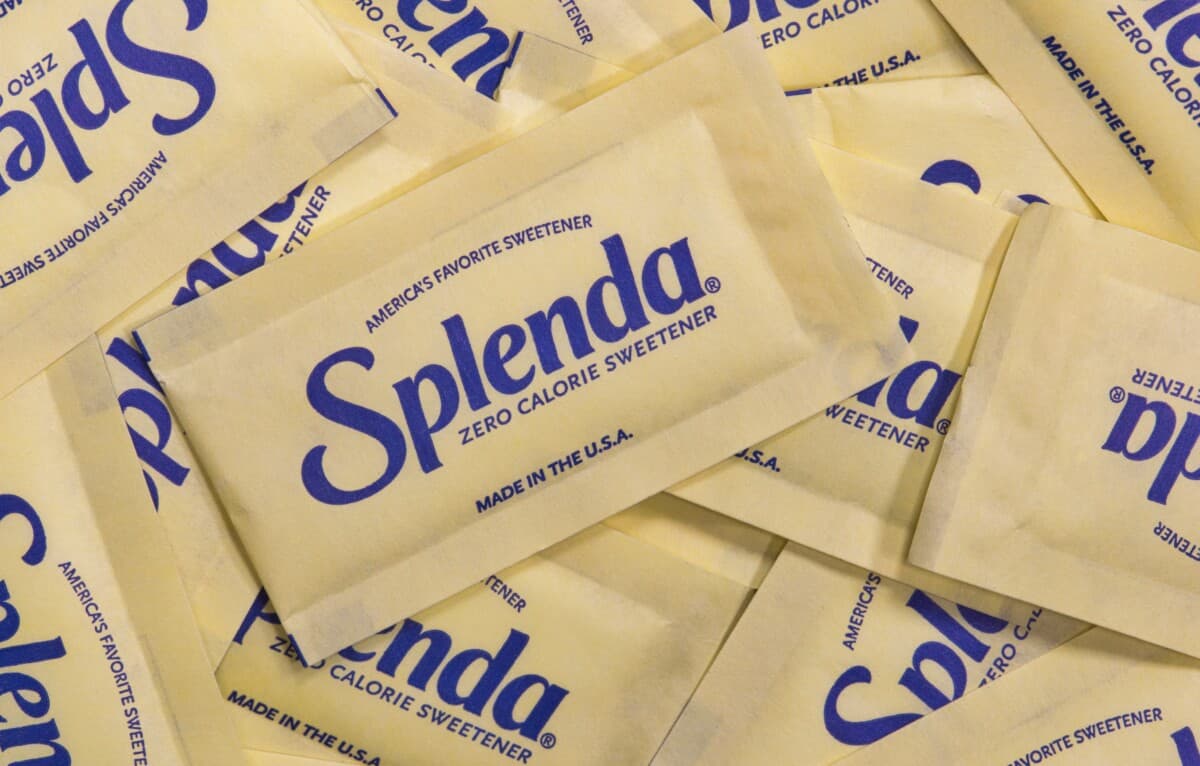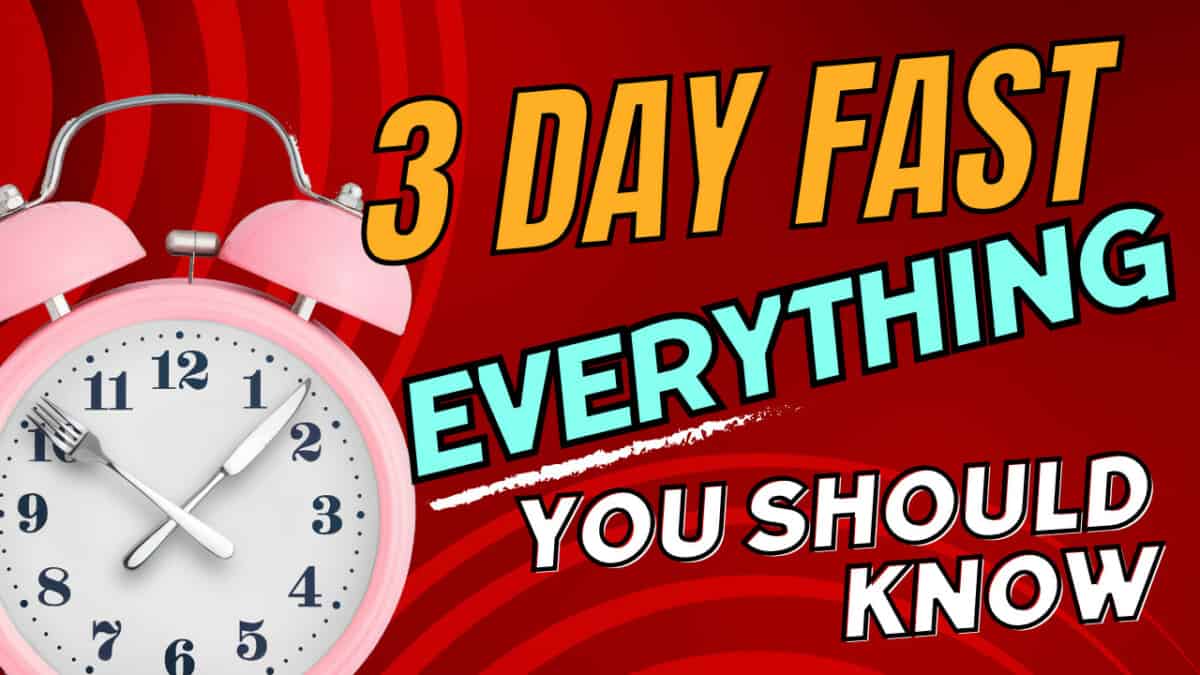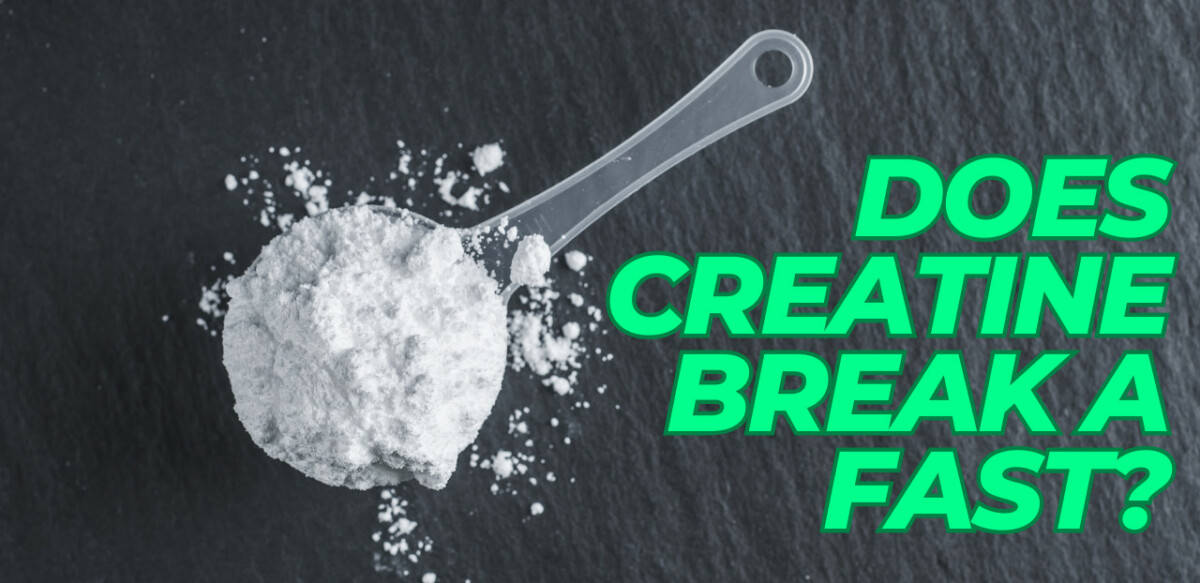Want to know how you can lose weight despite a lack of sleep? Studies have found that 1 in 3 Americans aren’t getting enough sleep per night1, and it’s the “missing ingredient” for weight loss.
Getting enough sleep can be essential for losing weight. Still, sometimes your schedule just doesn’t allow for a full seven or eight hours of peaceful, restful sleep. Fortunately, there are still ways you can achieve your goals while lowering the harmful effects of not getting enough sleep.
You can do everything right with your diet and exercise, but you can still gain weight or hit a plateau if your sleep is terrible. It’s easy to get frustrated with the weight loss process and feel like all hope is lost.
Lack of sleep can cause rapid weight gain, but you can use tweaks and tricks to overcome poor sleep. So keep reading to discover how sleep is impacting your progress and how to fix it.
Does Lack of Sleep Cause Weight Gain or Loss

Your sleep can have a direct impact on making you fat or skinny. And sleep research has conclusively found it to be one of the biggest hurdles to weight loss.2
Chronic sleep loss can also lead to higher rates of anxiety, depression, heart disease, and cancer.3,4 It can prevent you from losing weight or even gaining weight despite you eating less.
Here’s how lack of sleep can cause you to gain weight:
Disrupts hunger hormones
Ghrelin and leptin are two hormones that directly impact your hunger levels.5 Lack of sleep can cause ghrelin to increase, which makes you hungrier, and it can decrease leptin, making you less satisfied after eating.6
Hunger pangs are one of the hardest parts of dieting and eating healthy. So if your hunger hormones are out of whack, staying on your diet will be much more challenging. It’s also easier to snack at night if you’re not sleeping and then feeling hungry.7
Increased cravings
Not getting enough sleep can also increase cravings for unhealthy foods as your body seeks out quick energy sources.8 Unfortunately, overeating becomes all too easy when your hunger hormones are disrupted.
Studies have found lack of sleep increases cravings for high-fat, high-calorie, carb-rich junk foods.9 Fighting this urge to eat pizza, cheeseburgers, and pasta makes it way harder to stick to your diet.
Reduces self-control
You’ll notice your hunger surges, and your ability to resist temptation decreases when you’re sleep deprived. The parts of your brain that control your desires and impulses become inactive from poor sleep.10
Sleep helps to keep your defenses up against snacking poorly, binge eating, or heading straight to the nearest fast food. You’ll crave comfort food when tired from no sleep, setting you up for failure.
Makes you more sedentary
It’s no surprise you’ll be less active when you’re tired. Making it to the gym to work out or going for a walk sounds more like a chore than exercise beneficial for weight loss.
So you’ll not only be increasing your daily calorie intake, but you’ll also stop burning as many calories. This is a perfect recipe for weight gain. And the more sedentary you are during the day, the harder it can be to sleep at night.11
Increased stress hormones
While your body does need some of the stress hormone cortisol to run efficiently, having too much of it can cause weight gain. Cortisol can increase cravings for fatty, sweet, and salty foods while slowing fat burning.12
Stress also creates a deadly cycle. You’ll feel stressed the next day with poor sleep, which can cause you to sleep worse. Many people eat more comfort foods when they’re stressed, making gaining weight easier.
Sleep and Belly Fat

Sleep deprivation can not only make you gain weight, but it can also cause you to have an increase in belly fat. For example, visceral belly fat is a more dangerous body fat that surrounds your internal organs and puts pressure on them.
Losing this deep visceral belly fat is critical to your long-term health. Increased stress from lack of sleep can chronically elevate cortisol levels. This is directly linked with increases in hormonal belly fat.
Lack of sleep also slows down your fat metabolism.13
Your glucose metabolism can get out of whack from poor sleep. Glucose metabolism is the body’s process of breaking down carbohydrates for energy.14 When you eat carbs or sugars, your body will have a higher blood sugar and insulin spike when sleep deprived.
This roller coaster ride of excess blood sugar and insulin spikes can lead to weight gain and more belly fat. And when you’re sleep deprived and stressed out, you’ll be more likely to eat fatty high-carb foods. This is a “perfect storm” for increasing stomach fat.
When you sleep, your body does most of its repair and regenerative work. One part of this is reducing inflammation and readjusting water balances in your body.
But if you’re not getting enough sleep, then it’s possible some of this extra water in your fat cells stays and isn’t flushed out. Some experience the whoosh effect when the stubborn water in their fat cells suddenly flushes out. Sleep can help this!
How Many Hours to Sleep to Lose Weight
So how many hours of sleep do you really need per night for weight loss and to get rid of belly fat?
Most experts agree that 7-8 hours of sleep per night is ideal. More is needed if you only get 4-5 hours of sleep every night. You’ll become sleep deprived with only 4 hours of sleep even if you’re sleeping peacefully.
Is 6 hours of sleep enough for weight loss? One study found sleeping 5 and a half hours per night resulted in less fat loss than those getting at least 8 hours.15 While 6 hours isn’t the worst amount of sleep in the world, it’s also not the best.
But if you’re doing everything else right with your diet and exercise, you can still lose weight with just 6 hours of sleep. But you’ll have a lot less leeway and flexibility with your diet and exercise than those getting 7-8 hours of sleep.
If you’re not able to get 7-8 hours of sleep consistently, then you should focus on improving your sleep quality. Deep, restful sleep with plenty of REM will give you the most benefits in a short amount of time.
But it’ll be harder to lose weight if you’re only getting 6 hours of sleep per night and tossing and turning. Your body burns the most fat during REM sleep and recovers the most during this period.
How to Lose Weight Despite Lack of Sleep

Work and having small children can typically make your sleep schedule chaotic. Sometimes it’s just going to be that way for a while. So the best thing you can do is work around it the best you can. Here’s how to do that.
Prioritize sleep
When it comes to weight loss, diet is going to beat exercise. So there’s a saying amongst trainers that “you can’t out-train a bad diet.”
It can be better to skip that afternoon workout and instead get a nap. So if you’re really that tired and sleep-deprived, then a nap can do more for you than exercising.
Try to get your physical activity throughout the day. Going up and down the stairs can give you not only some exercise but it’ll also give you a quick energy boost. Staying more active during the day will help a lot more than a short workout.
Exercise can help you sleep better at night.16 If you exercise, try not to do it too late at night, or it could negatively impact your sleep. And intense exercise too late can get you riled up and endorphins flowing, making it harder to fall asleep.
Eat Satiating Foods
We talked about how sleep deprivation can cause you to crave high-calorie junk foods. You’ll also find yourself more hungry from sleep loss, which will sabotage your weight loss efforts.
So to help curb your hunger, it’s best to eat highly satiating foods that will make you feel fuller for a longer.
Satiating foods are those that help keep you feeling full and satisfied for longer. These can include high-fiber foods like berries, avocados and vegetables like kale and spinach. Protein-rich foods such as eggs, lean meats, or fish also have a satiating effect. Other great options include nut butters, seeds, nuts, and avocado.
If you find yourself hungry before bed, try having a low-carb protein shake. The protein is highly satiating and can help you sleep better at night. Going to bed hungry to lose weight isn’t a great idea because it can worsen your sleep quality since you’ll be fighting the hunger pangs all night.
Pre-Plan Your Meals
Since you’ll be craving junk foods and have less self-control due to sleep deprivation, it’s a good idea to pre-plan your meals to make sure you stay on track. You’ll be less likely to snack and overheat during the day. If you already have your meals planned out and ready to go.
Meal prepping by batching your food is one of the most efficient ways to stay on track. An easy way to do this is to make bigger batches of your meals and eat the leftovers over the next day or two. An example would be to grill up a bunch of chicken at once instead of just a single meal’s worth.
Try not to keep any snacks or junk food in the house; otherwise, you’ll find yourself fighting the temptation to binge and eat it. Successful weight loss comes down to staying consistent, and the easiest way to do that is not to have the temptation there in the first place to cheat on your diet.
Drink water
Dehydration makes it easy for the human body to confuse hunger for thirst. Making sure you’re staying hydrated will help curb hunger, give you more energy, and make you feel less sluggish.
So if you’re dehydrated at night, it can negatively impact your sleep. You’ll lose water throughout the day, not only from urination but also through your skin and breathing.
By the end of the day, you could be more dehydrated than you think. Your circadian rhythm, also known as your body’s internal clock, helps you manage and balance your hydration level.
If you’re asleep is interrupted, then you may find yourself not only retaining more water but also more dehydrated. And be careful not to drink too much water or else you’ll find yourself waking up too much during the night.
Reduce Alcohol
Staying away from alcohol can have a significant positive effect on your sleep quality. While alcohol can make you fall asleep quicker, it can negatively impact your deep REM sleep.17
This is why after a night of drinking alcohol, you may get a full eight hours of sleep, but you’ll still feel tired the next day. You’ll get less of the kind of deep sleep that helps your body and emotions rest and repair. Alcohol can disrupt all kinds of sleep, but deep sleep is the most affected by alcohol.
Try to minimize your alcohol intake to 1-2 small servings if you do drink. If you drink, try to have it a few hours before bedtime to prevent it from negatively impacting your sleep.
What should you do if you didn’t sleep all night?
If you didn’t get any sleep last night, then the best thing you can do is focus on your diet. Eat highly satiating foods that won’t spike your blood sugar or exceed your daily calorie limit.
High-protein foods include lean meats, low-carb protein powder, fish, eggs, and nut butters.
Steer clear of sugary foods, drinks, and refined carbohydrates with a high glycemic index. Refined carb foods include white bread, cereals, and sweet snacks like M&M’s that can quickly spike your blood sugar resulting in a crash shortly after.
If you do eat carbs or sugars, then at least take a carb controller to help prevent a blood sugar and insulin spike. It’ll also help your body burn the carbs and sugars up for energy instead of being stored as fat.
A Premier-Quality Formula for Supporting Healthy Blood Sugar Metabolism.
- Features a premium blend of ingredients (Berberine, Cinnamon, Chromax®, Benfotiamine, and Naringin) to support healthy carbohydrate metabolism
- Supports healthy blood sugar metabolism
- Helps maintain healthy blood sugar levels
- Assists with weight management
Also, drink plenty of water throughout the day to stay hydrated. This will help keep cravings at bay and give you more energy to get through the day.
Caffeine should be consumed earlier in the day and no later than lunchtime. Too much caffeine or having it too late can ruin your sleep, making you feel tired the next day too.
Best Time to Sleep to Lose Weight
It’s better to go to sleep earlier than too late. Staying up too late can disrupt your body’s natural circadian rhythms. This is why going to bed too late can still make you feel tired despite getting enough hours of sleep.
Ideally, it’s best to go to sleep between 9pm and 10pm. You can push it a little later than that but definitely don’t push it much further. It’s best to go to bed at the same time every night than to have it constantly switching up. Your body’s internal clock will get trained to go to bed at the same time every day making it easier to fall asleep.
It would help if you also tried to wake up at the same time. Sleeping in too late can throw off your internal clock making it harder to fall asleep at night. But if you need to catch up on lost sleep and are really tired it’s better to sleep in later (especially on weekends.)
Sleeping on your side is usually the best sleeping position to lose belly fat and weight. Studies have found you’re less likely to snore or deal with as much sleep apnea. The better you sleep and breathe throughout the night, the more rested and deep sleep you’ll have.
Conclusion
Getting a good night’s sleep is essential for weight loss and overall health. But if you are finding it difficult to get the recommended seven to nine hours of sleep, some tweaks can help you make up for lost sleep and still lose weight.
Staying hydrated during the day, avoiding alcohol before bedtime, eating satiating foods instead of sugary snacks throughout the day, and having caffeine earlier in the day will all contribute towards getting more energy when short on sleep.
Going to bed between 9pm-10pm every night (and waking up at the same time) and sleeping on your side also help improve sleep quality to not feel tired despite enough hours of sleep.
With these tips, you should be able to stay energized and can lose weight even with less than ideal amount of restful slumber!
Josh holds a Bachelor’s degree in Exercise Physiology and Nutrition Science. He’s a Certified Strength and Conditioning Specialist (CSCS) by the National Strength and Conditioning Association and he’s a Certified Personal Trainer (CPT) by American Council on Exercise. He’s worked as a Strength and Conditioning Coach at the high school and college levels. He has over 15 years of experience as a personal trainer and nutrition coach. He strives to bring inspiration and results for people to live healthier lives through smart diet and exercise.










